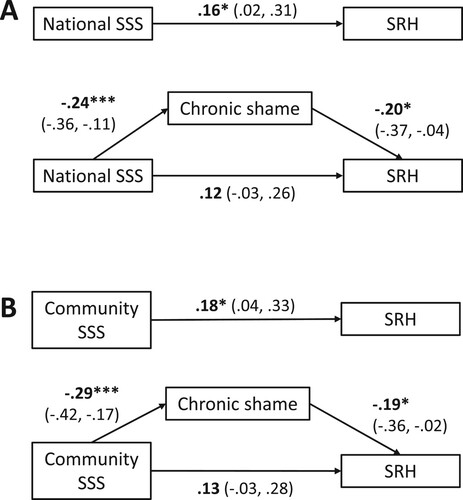Figures & data
Table 1. Participant characteristics.
Table 2. Correlation and unadjusted regression analyses between subjective social status (SSS), chronic shame, and self-rated health (SRH).
Figure 1. Depiction of the relationship between subjective social status (SSS) and self-rated health (SRH) mediated by chronic shame (Panel A: national SSS; Panel B: community SSS). Model controls for age, gender, ethnicity, employment, education, income, drug addiction, cigarette use, alcohol use, illicit drug use, leisure time physical activity, number of health conditions, and current negative affect. Chronic shame explained a significant portion of the relationship between each of the SSS variables and SRH. These results did not change when chronic negative affect was added to the model as a covariate. Numbers represent standardized beta coefficients (95% confidence intervals obtained through bootstrapping). *p<.05. ***p<.001. n=200.

Table 3. Regression analyses investigating chronic shame as a mediator of the relationship between national subjective social status (SSS) and self-rated health (SRH).
Supplemental Material
Download MS Word (23 KB)Data availability statement
The data that support the findings of this study are available from the corresponding author upon request.
